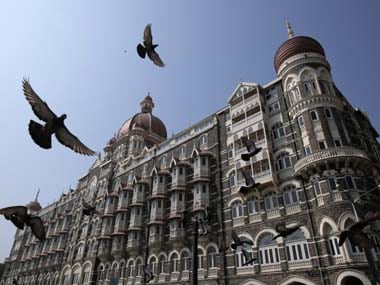In the wake of major terrorist incidents, there is much talk about ‘lessons learned’ both in India and across the world. Politicians and administrators are enthusiastic participants in this discourse, and eager to flaunt their many purported achievements. Such an exercise is not difficult, since things are constantly changing, and it is always possible to attribute at least some of these changes to the incident in question. Such has been the case with the catastrophic 26/11 Mumbai attacks. But if such a discourse is to be meaningful, it must address not only lessons learned, but those acted upon and vulnerabilities and deficiencies actually addressed. Preceding these, moreover, is the question: Lessons learned by whom? Several investigations and inquiries followed the attacks, and crucial lessons were certainly drawn from visible and dramatic failures that afflicted responses at every level. What is absent, however, is the evidence of systemic learning across government and, equally crucial, the wider public. The importance of the first of these is obvious, but the latter is also critical to the quality of a nation’s response to terrorism and security. [caption id=“attachment_2448738” align=“alignleft” width=“380”]  File image of the Taj Hotel in Mumbai. Reuters[/caption] In some ways, in fact, it is even more fundamental, because public attitudes drive politics and policies. In the 2009 general elections, shortly after the 26/11 attacks, it was widely expected that terrorism and security would be decisive issues for Mumbaikars, and that they would come out and vote in strength. The reality is, Mumbai saw a tepid voter turnout of 43 percent, against a national average of 59.7 percent, confirming public indifference, often misinterpreted as ‘resilience’. Indeed, it is useful to recall that Mumbai was also the location of the 1993 serial bombings, engineered by the Dawood Ibrahim’s gang, which killed 257 people. It is significant that Ibrahim’s D-Company still dominates organised crime in the city, reportedly with the active collusion of elements within the political and police leaderships. No party has paid an electoral cost for this. The reality is, lessons, if learned, are soon forgotten. We quickly slide back into apathy and sluggishness. While a large number of schemes were immediately announced, approved and funded after 26/11, implementation has been fitful, fragmented, tardy, uncoordinated and, eventually, has had little impact on vulnerabilities to future terrorist attacks. This despite the fact that governments boast of the large sums spent, the special forces raised or located in Mumbai, the creation and expansion of a coastal security infrastructure, and improvements in the intelligence gathering and infrastructure. The core of the problem is the general policing system and its crippling deficits. Security is indivisible, and it is not possible to ensure effective security against terrorist attacks unless all aspects of the apparatus are strengthened. Former prime minister Manmohan Singh rightly observed more than a decade ago: “Unless the beat constable is brought into the vortex of our counter-terrorist strategy, our capacity to pre-empt future attacks would be severely limited.” ‘Beat constable’, in this context, is shorthand for the entire system of preventive and first response, comprehending the general intelligence system as well as the basic deployment for law and order management. While there have been some marginal improvements on various parameters in this regard, the reality is, the ‘beat constable’ is still under-resourced, poorly equipped and abysmally trained. Public confidence in the police, even for routine functions, is low; expectations of any extraordinary efficiency in the event of catastrophic terrorist attack can only be misplaced. This is not to suggest that nothing has changed. The next time around, special forces may not take 10 hours to effectively deploy – they may take ‘just’ an hour or two; but that is more than enough time for terrorists to do their worst (Mumbai’s Force One and NSG hub are both located over 30 kilometres from the city’s high-profile southern tip). Cumulative improvements in intelligence — including technical capabilities — have resulted in a number of preventive successes, most of which go unnoticed; but there are colossal gaps, as Gurdaspur and Pathankot demonstrated, and Mumbai is far from immune. A chain is as strong as its weakest link. Large ships still run aground, or drop anchor, along Mumbai’s coast, unnoticed till well after the event; who is to say another rubber dinghy will not bring a new batch of mass murderers to its shores?
The reality is, lessons, if learned, are soon forgotten. We quickly slide back into apathy and sluggishness.
Advertisement
End of Article
Written by Ajai Sahni
Ajai Sahni is Executive Director, Institute for Conflict Management and South Asia Terrorism Portal. see more


)

)
)
)
)
)
)
)
)



